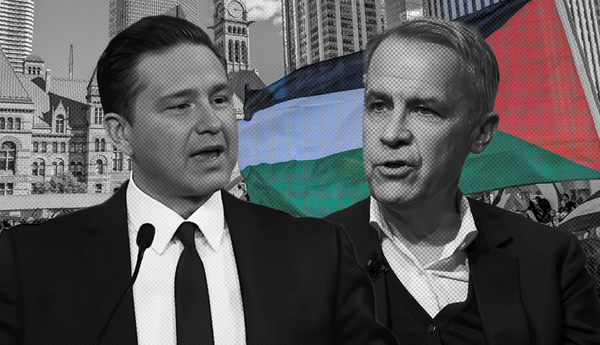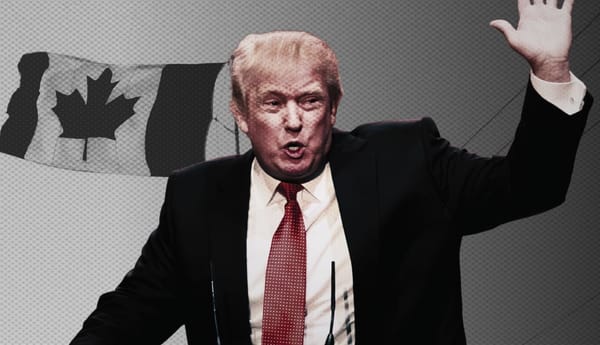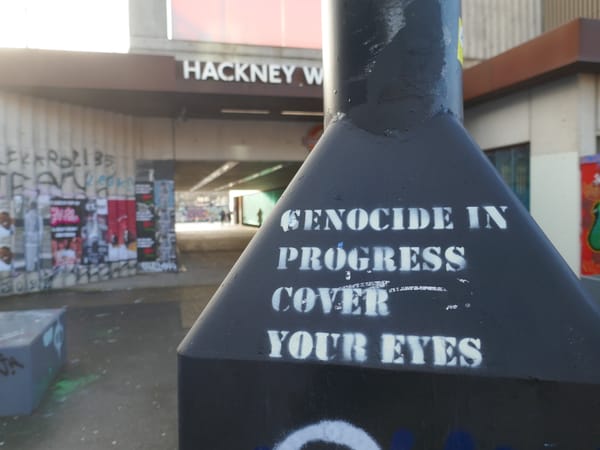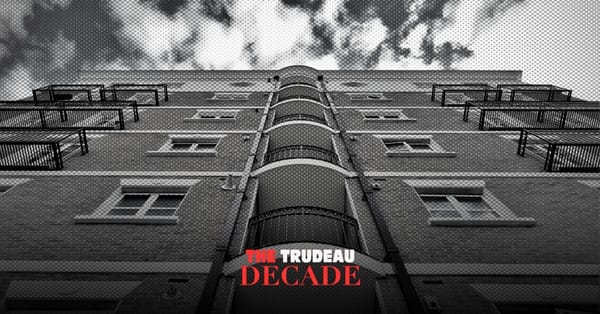This article is part of a series on vaccine passports. After reading this article, please consider reading the article we published supporting vaccine passports, and then voting.
In 1948, the United Nations’ Universal Declaration of Human Rights established the right for anyone to travel freely within their own countries. In the following decades, many people lacked access to this fundamental right, due to factors such as their immigration status. Then the COVID-19 pandemic came, and governments throughout the world effectively closed society and instated restrictions on everyday movements. Such rules often were accompanied with heavy fines or punishments when broken, and were cheered on, despite impacting migrants, refugees and unhoused people the most.
These radical policy changes challenged our idea of what is normal and acceptable, fundamentally shifting our conception of the right to movement. And now, a year and a half after such measures began to be implemented, many politicians and public health professionals are attempting to take things one step further.
Proposed vaccine passports are intended to physically (or digitally) tie our freedom of movement to health status, as it’s what we’d need to present for entry to a wide range of everyday locations, including restaurants, bars, concerts, gyms and other leisure-based or cultural venues.
These sorts of passports were temporarily implemented by the Israeli government earlier this year, and are now being partially reintroduced as cases rise. They’re also being considered and rolled out throughout Europe, including in France, where it will be required to go to movie theatres and clubs, and eventually bars, restaurants, and other businesses.
In Canada, the CBC reported earlier this month that, “Prime Minister Justin Trudeau says the federal government will work with provinces to ensure there is an ‘internationally accepted proof of vaccination’ for international travel, but will leave domestic options up to the provincial governments.” This means that the federal government will create and require a vaccine passport for travel abroad, while provinces will have to determine if they want one at home, and what they will entail.
So far, some provinces, such as Quebec and Manitoba, have said they will instate vaccine passports, while others, including Alberta, Saskatchewan and Ontario, said they won’t.
At first glance, vaccine passports may seem like an acceptable pathway to help achieve “normality” by raising vaccination rates while avoiding the sort of harsher pandemic restrictions we’ve experienced. Many have cheered on France’s program, for example, after six million new vaccine appointments were booked in the two weeks after it was announced, including nearly 1.3 million in the first 24 hours.
It’s tempting to determine that the dangers low vaccination rates pose to the community are more important than anything else, and that any drawbacks the passports present pale in comparison.
And yet, it would be wrong to do so, as vaccine passports may instead forever jeopardize the right to movement, social life, community and access to the public sphere, all while contributing to the forever-deepening surveillance state.
A New Relationship With The State
People who may typically be opposed to a domestic ID system have become more likely to support the vaccine passport, seeing it as a way to keep us safe and prevent another lockdown.
And yet, while there’s little proof thus far of that, it’s likely that the vaccine passport will facilitate a new relationship between individuals and the state, where access to social and political life is contingent on whether one completes or follows government-imposed health measures.
Once the infrastructure for a domestic pass system, which likely takes significant time and monetary investment to create, exists, it may prove difficult or impossible to get rid of, thus creating the grounds for a society where our abilities to move freely are forever hampered. The system’s introduction will facilitate and normalize a “papers, please” society, where all must carry certain documents or be able to prove specific, and potentially everchanging, facts about themselves.
Most proposed vaccine passports require proof of either both vaccine shots, COVID-19 recovery or a recent negative COVID-19 test. Even these test-based passports are restrictive due to the expensive, short-lived nature of the tests. But in time, these already troubling requirements may even expand or change to include items unrelated to the pandemic.
Privacy and security experts are already accusing the new passport platforms of function creep internationally. A company involved in the creation of a vaccine passport in the United Kingdom, meanwhile, has already said it could be repurposed in the future for a national ID card system.
Moreover, many vaccine passport systems being introduced, including Quebec’s, are digital or have digital components. It’s not yet clear how personal information, such as one’s location or “check-ins,” would be stored, or who may have access. Could the government be checking in on who you’re eating with? Are they taking note that you’ve checked into a bar several hours from your home?
With digital passports, the state’s capacity to check in on our lives has few boundaries.
A Precedent For A Two-Tiered Society
Some may argue vaccine passports will be similar to already-existing requirements mandating proof of vaccination for children to attend schools in some provinces or travelers to enter some countries. But these mandates typically come with the possibility of exemptions for medical reasons, or on religious and conscientious grounds, which ensure the principle of bodily autonomy — an important tenet of international human rights where group decisions can’t override or invalidate personal needs — is respected. And in the case of international vaccine passports, depriving an individual of their ability to go to a certain country is likely less disruptive to their everyday life than restricting them from establishments in their own city or town.
But ultimately, these new passports, regardless of any exemptions that could be added, are significantly different from previous mandates due to the more hostile social environment they facilitate through regular check-ins regarding one’s health and identity.
First, it’s unclear whether much will be done to accommodate those who don’t have smartphones, can’t be vaccinated for a number of reasons or are undocumented and may fear the sort of additional interaction with the state that obtaining a vaccine or vaccine passport may facilitate. Rather than returning to “normal” life, this system may create a new norm of further ostracism and increased surveillance, as even the menial act of sitting at a coffee shop could require some kind of documentation.
And by opting out of the passport, individuals will likely be left out of many social, family-related and community events. Bars, clubs, restaurants and other related spaces, after all, have an important social function as hubs where individuals can connect and build relationships. This is especially true in Canada, where bitter winters confine people indoors for much of the year. And people’s need for socialization can’t be minimized: human connection is fundamental to life and the social fabric itself.
Yet, unvaccinated people may lose out on more than socializing, and that’s because once the precedent for banishing a group of people from particular places is established, anything may become game. In Cyprus, for example, the country’s SafePass is now required for larger supermarkets and even public transportation.
Perhaps most importantly, this system may lead to groups excluded from vaccination not being regarded as equals. An Israeli Health Minister, for example, recently said, “Whoever does not get vaccinated will be left behind.”
It’s clear that the kind of separation vaccination passports facilitate has the potential to create a serious social divide. Rather than end a crisis, these passports will create another one.
Capitalism And Public Health
Many people have emphasized throughout the pandemic that they abide by restrictions and guidelines because they “follow the science.” The problem with this sentiment is that science and public health aren’t neutral entities under capitalism (no government or international institution truly is), and should not in themselves be the grounds used to establish the precedent of a two-tiered society.
We can’t ignore the for-profit character of corporations that produce and distribute COVID-19 vaccines — who can’t be held liable for side effects they create — and the long history of medical racism perpetuated by pharmaceutical companies, academia, and health professionals alike.
Unilaterally and severely restricting movement to those who don’t take the vaccine, a potentially significant percentage of the population, shows the general public that these legitimate issues are of little concern, and fosters an environment of mistrust while also trivializing one’s right to informed, voluntary consent.
A vaccine, after all, is a medical intervention and must require a high level of consent from those who receive it: one’s personal life, ability to move or job can’t be bargaining chips in such an equation. This right to bodily autonomy, which can’t be overridden even in times of crisis, must be taken seriously, or it, like our right to movement, may be infringed upon in the future.
A public health crisis requires diligence and compassion for others. It also requires solutions that don’t jeopardize our rights, discriminate or cause further social distress. When restricting one’s right to movement or limiting other personal freedoms, the burden of proof must be on governments to demonstrate these measures will effectively and reasonably address the given crisis at hand. They have yet to do so with regard to vaccine passports.
In that respect, vaccine passports can’t be the way forward.






